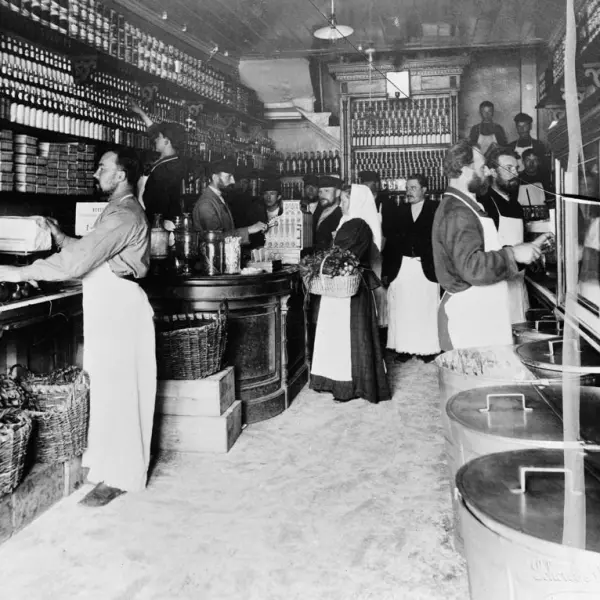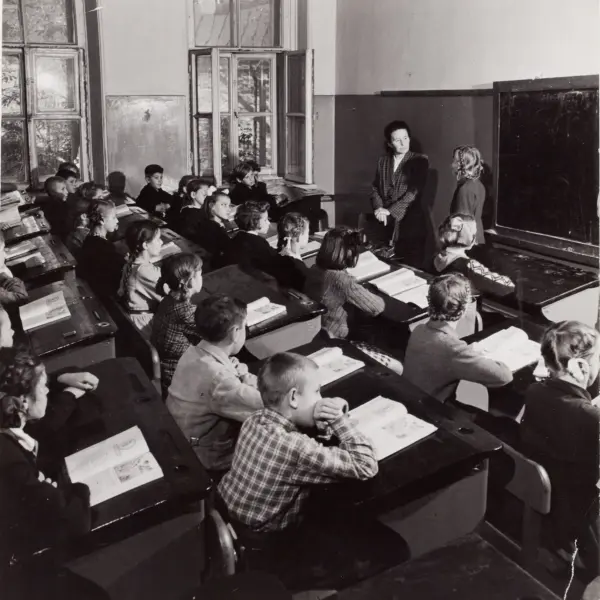Tchaikovsky and Antonina on their honeymoon
In 1877, Pyotr Ilyich Tchaikovsky married Antonina Miliukova, a woman whom he had known for some time but whose relationship with the composer was complex and troubled. Their marriage took place on July 18, 1877, but it was not a joyful union for Tchaikovsky. The composer, who had struggled with his sexual identity and emotional turmoil, entered into the marriage under pressure from his family, who hoped that it would help him overcome his personal struggles.
Antonina, a former student of Tchaikovsky, was deeply in love with him and had long admired his music. However, Tchaikovsky's feelings toward her were more complicated. He was not romantically in love with her and was, in fact, deeply distressed by the marriage. Shortly after the ceremony, Tchaikovsky's emotional and psychological state deteriorated, and he began to suffer from extreme anxiety and depression. He eventually fled from his new wife and went into seclusion, shortly after their honeymoon began, which was spent in the countryside.
The honeymoon, which was supposed to be a time of joy and connection for the newlyweds, instead became a period of isolation and emotional distress for Tchaikovsky. He wrote to friends and family members, expressing how he felt trapped in the marriage and how deeply unhappy he was. His feelings of guilt and fear for his own identity only intensified during this time. It became clear that the marriage was not going to work, and within a few months, Tchaikovsky left Antonina and retreated from the relationship.
Despite the painful circumstances surrounding his brief marriage to Antonina Miliukova, Tchaikovsky continued to create some of his most important works during this period, including his *Violin Concerto* and his *Symphony No. 4*. His personal struggles, particularly the turmoil stemming from his marriage, would often fuel his music, leading to compositions that are deeply emotional and full of tension and expression.
In hindsight, Tchaikovsky’s marriage to Antonina is often seen as a turning point in his life, marking a period of personal crisis that eventually led him to a deeper understanding of himself. While their marriage was short-lived, Antonina remained a significant figure in Tchaikovsky's life, and the composer’s emotional struggles during this time had a lasting impact on his work.
Antonina, a former student of Tchaikovsky, was deeply in love with him and had long admired his music. However, Tchaikovsky's feelings toward her were more complicated. He was not romantically in love with her and was, in fact, deeply distressed by the marriage. Shortly after the ceremony, Tchaikovsky's emotional and psychological state deteriorated, and he began to suffer from extreme anxiety and depression. He eventually fled from his new wife and went into seclusion, shortly after their honeymoon began, which was spent in the countryside.
The honeymoon, which was supposed to be a time of joy and connection for the newlyweds, instead became a period of isolation and emotional distress for Tchaikovsky. He wrote to friends and family members, expressing how he felt trapped in the marriage and how deeply unhappy he was. His feelings of guilt and fear for his own identity only intensified during this time. It became clear that the marriage was not going to work, and within a few months, Tchaikovsky left Antonina and retreated from the relationship.
Despite the painful circumstances surrounding his brief marriage to Antonina Miliukova, Tchaikovsky continued to create some of his most important works during this period, including his *Violin Concerto* and his *Symphony No. 4*. His personal struggles, particularly the turmoil stemming from his marriage, would often fuel his music, leading to compositions that are deeply emotional and full of tension and expression.
In hindsight, Tchaikovsky’s marriage to Antonina is often seen as a turning point in his life, marking a period of personal crisis that eventually led him to a deeper understanding of himself. While their marriage was short-lived, Antonina remained a significant figure in Tchaikovsky's life, and the composer’s emotional struggles during this time had a lasting impact on his work.
Accesorios
Adulto
Arte
Ropa
Rostro
Ropa formal
Guante
Cabeza
Masculino
Hombre
Cuadro
Persona
Fotografía
Retrato
Atar
Envíado por OldPik el 7 de enero de 2024
Image

Debes iniciar sesión para comentar las fotos.
Iniciar sesión
Iniciar sesión














Sin comentarios aún, sé el primero en comentar...